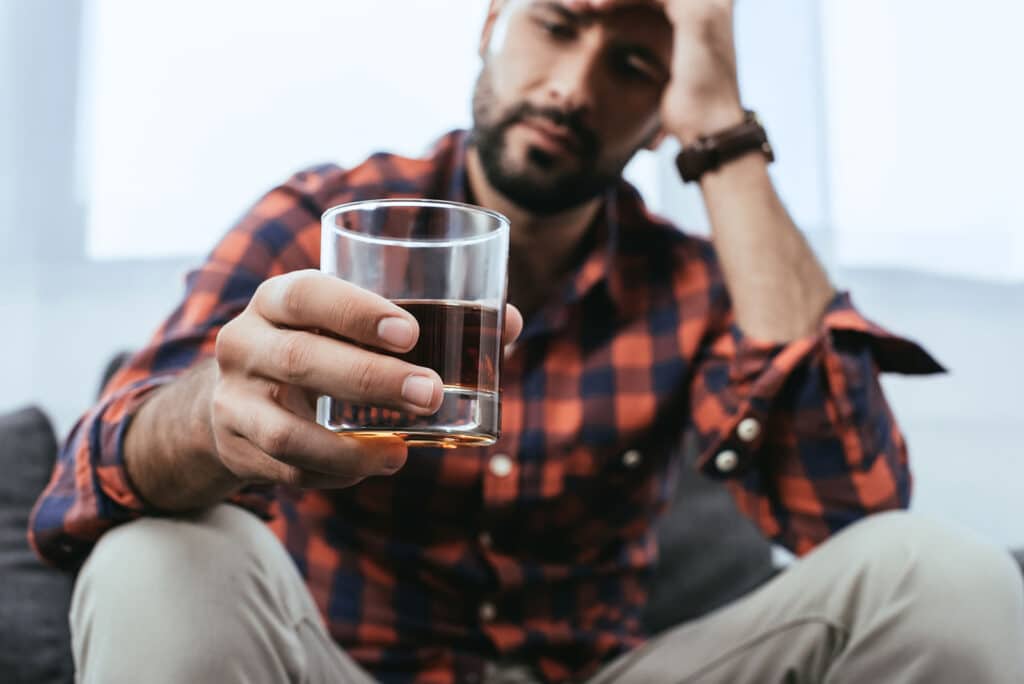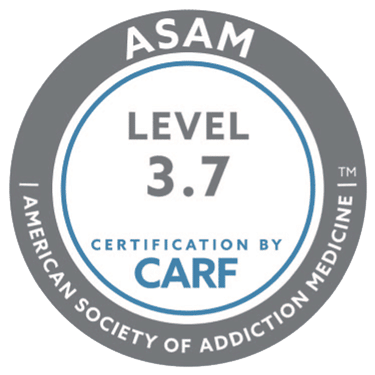Addiction is one of the hardest hurdles to overcome in anyone’s life, as it puts a lot of pressure not only on the person but on their family and loved ones as well.
The neuropsychological urge to engage in certain actions while disregarding its implication on health can lead to plenty of complications. In fact, a recent study found that over 106,000 died due to drug overdose in 2021 alone.
However, with the right help, addiction treatment is actually quite possible, and in today’s article, we’ll take a closer look at the types, treatments, and challenges associated with addiction.
Types of Addiction
Addiction comes in a wide range of forms, and different types of addiction can vary in terms of severity, circumstances, and therefore treatment.
In this section, we’ll take a closer look at some of the common types of addiction to have a better idea of each one of them:

Substance Addictions
Substance addiction is a form of neuropsychological disorder that involves the use of certain chemical substances in an abusive way.
Substance and Drug addiction is usually associated with illicit chemicals but it can also include the use of certain medications for recreational purposes. However, also much like other chronic health conditions, there are various ways to treat and manage drug addiction.
1. Alcohol Addiction
Alcoholism is defined as compulsive drinking and losing the ability to control intake. In other words, it’s not associated with the amount of alcohol consumed, but with the ability to stop drinking when you want to.
Although alcohol is not nearly as addictive as some other types on the list, it remains one of the most commonly abused substances in the world, with over 107 million people suffering from Alcohol Use Disorder, according to reports.
The reason why alcohol addiction is so common comes from its high availability and mild addictiveness, which encourage abusers to consume it in large amounts and deny their inability to control their intake.
According to the World Health Organization, alcohol abuse is responsible for 3 million deaths every year, whether by accidents or by alcohol-associated diseases.
2. Opioid Addiction
Opioids include a wide variety of chemical substances that interact with the opioid receptors in our bodies. Many of these chemicals are derived from the opium (poppy) plant, hence the name.
Opioids’ main function is severe pain relief, but they’re also for various medical purposes including anesthesia, such as oxycodone, hydrocodone, morphine, and fentanyl. Methadone, buprenorphine and naltrexone are FDA-approved for the treatment of opioid drug use disorder. These medicines can reduce your craving and may help you avoid relapse.
Despite their medical benefits, opioids are extremely abused because they can also induce intense euphoria (high). According to statistics, over 16 million people worldwide suffer from opioid addiction.
3. Cocaine/Heroin Addiction
Cocaine and heroin are chemically altered, illegal opioids, which makes them much more potent than regular ones. This potency also makes them extremely addictive and among the hardest addictions to treat.
While they’re often paired together, cocaine and heroin have opposite actions. Cocaine is a stimulant while heroin is a depressant, but they both induce incredibly intense euphoria.
4. Marijuana Addiction
Marijuana is a form of cannabis, which is also known as weed or pot. It’s one of the most common psychoactive drugs that is used for both medical and recreational purposes.
Similar to alcohol, marijuana is not highly addictive. However, studies show that around 30% of marijuana users are at clear risk of developing marijuana use disorder, especially those who start consuming it at a young age.
5. Hallucinogens Addictions
Hallucinogens are a remarkably diverse class of psychoactive chemicals, including psychedelics and deliriants like LSD.
These drugs are often used to induce major alterations in perception, whether visual, audible, or both.
Although many hallucinogens are recently invented, they have been used in rituals for thousands of years.
However, they’re currently mainly associated with rave culture, which is why they’re also called “party drugs”.
6. Hypnotics Addiction
Hypnotics, also known as “sedative”, are depressant medications used to induce sleep, extend its duration, or improve its quality.
The trickiest part about dealing with hypnotic abuse is the high dependency on these medications.
In other words, if you take these medications without doctors’ advice, you’ll have a hard time sleeping without them, which leads to more drug abuse.
Besides being addictive, hypnotic overdose is a serious condition that can lead to coma and death.
7. Stimulants Addiction
Stimulants are the opposite of hypnotics. This group includes chemicals like methamphetamines and medications like Adderall and Ritalin.
These medications are abused for various purposes, such as staying awake, improving concentration, and losing weight. However, they can have serious health consequences, especially on the heart.
8. Other Types of Substance Addiction
While the previously mentioned types are the most common, there are plenty of addictive substances that can be easily abused.
This includes the misuse of prescription medications, which can cause serious side effects.
Additionally, there’s also substance dependence, such as the case of nicotine (tobacco) as well as coffee and energy drinks (caffeine).

Behavioral Addictions
When people think of addiction, substance abuse is usually the first thing that comes to their minds.
However, behavioral addiction can also be a serious problem that has its own challenges during treatment. Here’s a quick look at some of the different types.
1. Gambling Addiction
According to reports, 8 out of 10 Americans gamble at least once a year. While gambling itself is a safe behavior, around 1% meet the criteria of excessive gambling.
Pathological gambling can be a huge issue that is linked with serious negative consequences, such as Post-traumatic stress symptoms, heavy debts, and much more.
2. Internet Addiction
Internet addiction is more about a lack of impulse control than satisfying reward centers in the brain.
It can take many forms, including social media addiction, cybersex addiction, and even compulsive information-seeking disorder.
This includes spending excessive hours on social media, the inability to cut back or stop, and failing to meet responsibilities or show up for important opportunities to stay on the internet.
3. Gaming Addiction
Despite being a harmless activity with some positive effects on mental health, spending too much time playing games can cause serious mental and physical harm.
This type of addiction isn’t limited to young teenagers, as gaming addiction can happen at any age.
While gaming addiction definition is still up for debate, some studies estimate that 0.86% of gamers may suffer from this disorder.
4. Food Addiction
Like other types of behavioral addiction, food addiction is also more about a lack of impulse control than a reward response.
In other words, an individual who’s addicted to food doesn’t have to enjoy eating, but they’re unable to cut back on it, which is the core difference between food addiction and other eating disorders like binge eating.

Treatment Options for Addiction
Since every type of addiction has its own challenges, it’s only natural that each one will have its own treatment.
However, we can group the general methods used to treat addiction under 4 main criteria. Let’s have a quick look at each one of them and how they can help.
1. Medical Detoxification
Medical detoxification is a critical step in the treatment of addiction and the cornerstone of recovery from addiction.
The detox stage is the stage where all chemically addictive substances are gradually removed from the body.
While medical detoxification is mainly for substance substance abuse treatment, there’s also virtual detox for behavioral addiction where the individual stays in a trigger-free, supportive environment to downgrade their urge and addictive patterns.
2. Behavioral Therapy
Impulse control is one of the main reasons some individuals develop addictive patterns, and that is where behavioral therapy comes into play.
Cognitive Behavioral Therapy
Cognitive behavioral therapy (CBT) is a successful treatment strategy that relies on communication to correct thinking patterns and reduce anxiety.
This method of treatment is highly effective in managing addictive thinking and fighting urges, so it’s suitable for both substance and behavioral addiction, with plenty of studies backing up its efficacy.
Dialectical Behavioral Therapy
This one is simply known as “DBT”, and it’s an evidence-based therapeutic technique based on CBT.
DBT is specifically designed for those who suffer from psychological disorders or severe trauma along with their addiction.
The aim of this therapy is to help patients bring their minds to a state of clarity that helps them control their impulses, especially those who didn’t respond to other types of therapy.
Motivational Interviewing
Motivational interviewing is a therapeutic technique that aims to establish commitment toward a goal and gain the motivation to achieve it.
The technique is widely used to encourage individuals suffering from substance abuse disorders to overcome the lack of motivation to stay sober, especially those who were initially unwilling or had mixed feelings toward change.
3. Support Groups
The feeling of isolation and lack of mutual understanding is one of the biggest hurdles that substance abuse patients have to cross.
Luckily, support groups are a great way to reduce that feeling of isolation and create a supportive and trigger-free environment where everyone can share their emotions, whether physically or virtually.
12-Step Programs
The 12-step program is a peer-based program that outlines guiding principles to help recently recovered patients overcome their addictive urges/triggers and stay productive.
The program was initially designed for alcoholism, but it showed remarkable success in different types of addiction and substance abuse disorders because it targets the core aspects that push individuals to become addicted.
Non-12-Step Programs
The non-12-step program is an alternative support group therapy technique that puts more emphasis on peer support and personal responsibility rather than relying on a higher power or religious faith for motivation to stay sober.
4. Medications
While there are no direct medications that can treat substance and behavioral abuse disorders, medical professionals can prescribe a variety of medications to manage the symptoms associated with withdrawal, especially for substance addiction.

Steps to Take for Addiction Treatment
Overcoming addiction is all about intervention and taking steps on the right path. Here’s a quick look at the steps toward treatment:
1. Seeking Professional Help
While overcoming addiction on your own is entirely possible, seeking the help of a health professional makes the process safer and much more effective.
Professionals have the expertise to assess the situation and choose the best approach depending on the type of addiction, individual personality, etc.
2. Creating an Individualized Treatment Plan
As previously established, there are general guidelines that were proven effective when it comes to addiction recovery.
However, creating a personalized treatment plan can greatly improve the success rate of the treatment. Luckily, addiction treatment centers and other treatment professionals can easily provide that.
3. Adhering to Treatment
Quitting treatment and relapsing is one of the biggest challenges while treating abuse disorders, whether it’s a substance or behavioral addiction.
For that reason, focusing on commitment and motivational techniques is critical after the detoxification phase.
4. Maintaining Sobriety
After completing the initial treatment and becoming sober, staying committed to the new lifestyle and avoiding triggers becomes extremely necessary. This can be achieved by:
- Establishing guidelines for your daily responsibilities and committing to them
- Surrounding yourself with a support group and avoid bad influences
- Staying in contact with treating professionals and keeping them up with updates.

Challenges in Treating Addiction
While treating addiction, there are several challenges that you must look out for to increase the odds of treatment success. These include:
- Withdrawal Symptoms: These symptoms cause a lot of discomfort and discourage many patients to continue treatment, which is why tapering the dose and administering pain relievers is quite essential during detox.
- Co-occurring Disorders: Substance abusers who also suffer from mental illness require extra care when it comes to dose adjustment, making them among the most difficult cases of addiction to treat.
- Relapse Prevention: Quitting treatment and relapsing after treatment comes from poor preparation for dealing with triggers and how to avoid them, and that’s where a personalized plan created by the treatment provider, greatly reduces the chances of relapse.
Final Thoughts
This wraps it up for today’s guide that walks you through the different types of addiction and their treatment.
While there isn’t one simple solution to treat addiction, there are still plenty of treatment services and options that can be highly effective when combined with professional expertise and treatment discipline. If you or your loved ones are suffering from any type of addiction, don’t hesitate to find treatment and immediate medical help, as early intervention can greatly increase the odds of addiction treatment success.
FAQ
What is addiction treatment?
When should someone seek addiction treatment?
What types of addiction treatment are available?
How long does addiction treatment last?
Can addiction be cured?
What is the success rate of addiction treatment?
How much does addiction treatment cost?
How do I choose the right addiction treatment program?
Can a person be forced into addiction treatment?
What happens after addiction treatment?







